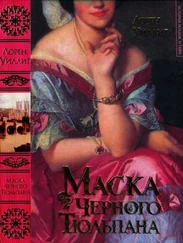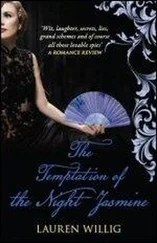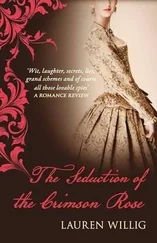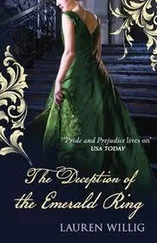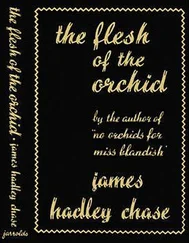“What are you doing here, Delaroche?” André asked flatly.
Delaroche smirked, displaying his yellowed teeth. “Fouché asked me to assist you in this interrogation.”
Had Fouché set Delaroche to spy on him?
No. André dismissed the idea as rapidly as he had considered it. Fouché knew that André was his man, not only by marriage but by the bonds of necessity. Any position or power that André possessed came solely through Fouché. Position and power were terms that Fouché understood, tools he employed to grapple men to him. Loyalty, love, ideals—all those were as grass compared to the powerful motivator of man’s self-interest.
It was far more likely that Delaroche had invited himself along and Fouché had conceded, deeming it an easy way to keep Delaroche out of his own hair.
“Excellent,” André said briskly, clamping his hat under his arm and striding forward ahead of Delaroche into the foyer. The guards stood aside at his approach, recognizing him by sight. “How very considerate of my cousin to provide me with an assistant.”
“With assistance,” Delaroche corrected, trotting along behind him. “Not an assistant.”
“Forgive me,” said André insincerely. “My mistake.”
He deliberately picked up the pace. He could hear the clip-clop of Delaroche’s boot heels as the other man hurried to catch up. He lengthened his stride, nodding to the guards on either side as he hastened up the worn stone stairs to the second floor.
“Interrogation,” Delaroche oozed—or wheezed, although he made a valiant effort to turn the sound sinister, even while scurrying to keep up. “Interrogation is an art. One that takes years of study and dedication to perfect.”
“Or just a small room and a prisoner,” said André heartlessly. “I hope you left your thumbscrews at home.”
Delaroche regarded André with disfavor.
The two men came to a halt before a thick wooden door, the panels relieved only by a small, metal grille. In the cell, a man sat slumped on a cot, his bare head bowed. His hair had been carelessly clubbed back with a ribbon, but chunks stuck out at odd angles, as though it had been accomplished without the aid of a brush.
As the guard unlocked the door, the prisoner sprang up. Hope and fear chased across his haggard face, as though he didn’t know whether to fear to hope or hope to fear. Execution or pardon? The lady or the tiger?
A deputy sidled through in front of them to take his place at a square, sturdy-legged table on which paper, ink, and pens—several of them—had already been arranged. Nothing had been left to chance. Fouché was determined that Querelle would talk and talk now. He had gone to great lengths to ensure that it would be so.
“Good evening, Monsieur Querelle.” André positioned himself in front of Delaroche, effectively blocking the smaller man. He needed no assistance from Delaroche for this; he had played through this script before. He wanted nothing more than to get through it as quickly as possible. “I hear that it is the will of the people that you will not be with us much longer.”
The night before, the prisoner had been hauled out of bed and dragged before a military court specifically convened for that purpose. Still fuddled with sleep, Querelle had been tried and condemned to execution, then shoved back into his cell to contemplate his own imminent demise.
“The will of the people?” Querelle made the mistake of allowing his scorn to show. “What people? That was no real court.”
André couldn’t help but agree. Any court convened at three in the morning and presided over by the First Consul’s brother-in-law, a man more famed for his hair than his wit, could hardly be accounted much of an ornament to the French justice system. However, he didn’t think his employers would thank him for sharing that opinion. The law as he had learned it had no place in the new regime.
“No?” André said quietly. “The consequences, I assure you, are very, very real.”
Delaroche trod on André’s foot in his eagerness to get to the prisoner. “Have you looked out the window? You will find something there that might interest you.”
The window was little more than a rough square hewn in the wall, lined with closely set bars that did little to keep out the elements. Frigid night air whistled between the bars, and with it the sound of activity in the courtyard below.
There was a scaffold already built in the courtyard. A man in a ragged wool vest was spreading fresh sawdust across the boards.
André saw the muscles in Querelle’s throat work as he swallowed. To hear that one was condemned to death and to see the instrument of it, oiled and ready for use, were two very different things.
The Ministry of Police was nothing if not efficient in its work.
“That is for me?” Querelle asked hoarsely. He had to clear his throat before the last word.
“Not just for you.” Delaroche folded his arms across his chest, giving the prisoner a superior look. Not hard to look superior, thought André critically, when your opponent was in chains and hadn’t been allowed fresh linen in nearly a month. “Did you think you were the only soul in Paris with more pride than sense? Some of your comrades made the same mistake . . . and will pay the same price.”
The prisoner looked at Delaroche uncomprehendingly. A sort of dull trepidation could be seen in his expression, as though he had some inkling of what was to come but knew himself to be powerless to ward against it.
“‘Price,’” Querelle repeated. “Price?”
“Picot and Le Bourgeois have also been condemned to death,” said André, ending with brutal simplicity what otherwise would have been at least ten minutes of ominous innuendo.
The two men had been part of the same Royalist network as Querelle, but they had been less fortunate in their captors. Kept in close confinement in the Temple Prison, they had been put to the question in fine medieval fashion. They had begged for death and in the end been granted it, not out of any impulse of mercy, but because Fouché had found what he hoped would be a weaker link: Querelle.
“Condemned,” confirmed Delaroche, rolling the word lovingly on his tongue. “Condemned to an end on the guillotine. They, too, refused to cooperate with the officers of the Republic. Last night, they were taken before a military commission, tried, and”—Delaroche allowed a brief pause, during which time his gaze went meaningfully to the window—“sentenced. To death.”
Querelle licked his lips, as though they had gone dry. “So fast?”
“Justice is swift, Monsieur Querelle. Ah, and there we see it in action. Shall we?”
It was a command rather than an invitation. In the courtyard, the torches burned sullenly in their brackets against the wall. The rain and wind made the flames sizzle and crackle. The flames cast an eerie red glow over the proceedings, like a medieval painter’s rendition of hell, the red light lapping at the raw wood of the scaffold and glinting off the blade that hung so ominously suspended above.
From the lee of the building, a man stumbled forward, his hands bound behind him just as Querelle’s had been. His head, too, was bare to the elements. The rain slicked his shirt to his skin. From the second-story window, they could hear him shudder, although whether with cold or with fear was unclear. He swayed as the wind buffeted him, his head and shoulders hunched against the stinging rain.
There was to be no grand state execution, no glorious death for his cause. Any speech made at the scaffold would be lost in the howling rain, blunted against the bored indifference of the detail of soldiers who were his only audience. They were prepared to dispatch the man as any farmer might dispatch vermin caught poaching on his crops, without mercy or regret.
Читать дальше

